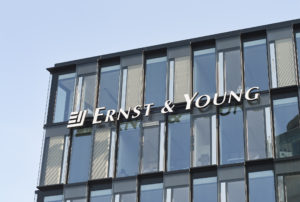When Karen Ward accused her company of sexual harassment, Ernst & Young seemed to do everything in their power to deny it. Her boss commented on her body, inappropriately touched her and then propositioned her.
 In this #MeToo era, where the training of all executives in regard to sexual harassment should be absolutely mandatory, Karen Ward was failed. That the lack of awareness on the part of a multi-billion-dollar company failed her goes beyond the incredulous. Karen Ward was a partner, fairly high up on the organizational chart. I can’t imagine what more junior women must potentially go through.
In this #MeToo era, where the training of all executives in regard to sexual harassment should be absolutely mandatory, Karen Ward was failed. That the lack of awareness on the part of a multi-billion-dollar company failed her goes beyond the incredulous. Karen Ward was a partner, fairly high up on the organizational chart. I can’t imagine what more junior women must potentially go through.
Bringing the case forward
Ms. Ward had more than enough of the harassment and so, properly, she brought the situation to the attention of HR. She was soon retaliated against and not long after she was fired. At this juncture, the company finally acquiesced to arbitration. Here is where a whole new – and unethical set of circumstances kicked in.
Private arbitration, rather than a court case is not “free.” Organizations such as E&Y know this. To date, Ms. Ward has had to pay out $185,000 of her own savings to have a panel of arbitrators hear her complaints against the company.
If this sounds unfair, it is. She is being punished a second time for complaining of sexual harassment. Why is she spending so much money? Because by contract to the accounting firm she must submit to arbitration. The accounting firm makes employees sign this to keep the proceedings from going public. It has been estimated that if she could have filed this claim publicly, the whole deal would have cost her $450.
Her contention in filing an additional lawsuit against arbitration is that under most circumstances, no lower-level employee could remotely pay such fees. According to her lawyers,
“Ms. Ward is pursuing her claims because of her firm belief that discrimination and retaliation of any form are wrong and cannot go unaddressed. EY knows this [forced arbitration] will cause other women to never bring these kinds of claims. They know how they’ll be treated.”
Advantage, Unethical Companies
Forcing employees into arbitration is a common practice. I would not want to give the impression that E&Y is alone in this. Arbitration almost always favors the company as the high cost prohibits the complainant from really doing the necessary research. Even if the panel rules in favor of a sexual harassment complaint, arbitration cases usually result in lower awards.
As amazing as it sounds, for a case of this magnitude, the nearly $200,000 it will eventually cost Karen Ward isn’t considered exorbitant. The good news is that lately, major companies such as Microsoft, Uber, and Google have stopped forcing employees into arbitration due to the negative publicity this action could potentially bring.
Sexual Harassment and Arbitration
As this case has gained notoriety not just for the sexual harassment but far more for forced arbitration. As this has begun to fascinate the media, all kinds of emails and letters have been uncovered where Ward tried to present her case and was shut down at every turn.
Not surprising, when Ward wrote to E&Y (the CEO, no less) to allow her to walk away from arbitration and take the case to the courts they went silent. Instead of doing the ethical thing, they walked away. The executive committee and E&Y Board obviously were behind the decision.
The executives in this case undoubtedly felt they had the opportunity to wait it out until Ward’s funds gave out. The need to do this was obvious. E&Y does accounting services for massive companies with thousands of female employees. They felt they couldn’t afford the negative publicity had the case gone public.
Now, despite their efforts, the case has gone public. What they face in negative publicity far outweighs any settlement they could have reached before it all blew up in their faces.
As to ethics training, who can say? Maybe the rank and file are forced to listen to droning lectures but it’s a safe guess that management was asleep at the wheel.


